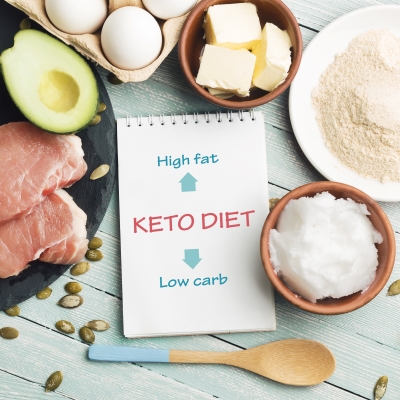09 Aug 2024 — In nutrition news this week, Balchem funded nutrition research conducted by the Linus Pauling Institute and the Micronutrient Information Center, while Gelteq strengthened its partnership with Monash University, Australia. Meanwhile, the Food Research & Action Center has called attention to a drop in the number of children participating in the Summer Nutrition Programs and Snif-Snax’s salmon and sweet potato dog treats were awarded “Natural Dog Treat Product of the Year.”
Nutrition news
Specialty ingredients manufacturer Balchem awarded a grant to Oregon State University’s Linus Pauling Institute, a nutrition research center based in the US. The funding will be used to support nutrition science worldwide and increase consumer awareness of its benefits. Updates of the initiative’s progress will be given to the institute’s Micronutrient Information Center, including new scientific insights on the role of choline during pregnancy. These fundamental updates provide expectant mothers and healthcare professionals with evidence-based information on optimal nutrition during pregnancy. The funding facilitates the update of two key pages on nutrition during pregnancy. In addition, the funding supports the new Spanish-language page on choline.
The CarnoSyn Brand portfolio, exclusive to Natural Alternatives International, has unveiled a range of patented ingredients called TriBsyn featuring paresthesia-free beta-alanine powder. The product is a carnosine booster using CarnoSyn beta-alanine and patent-pending technology to increase the ingredient’s bioavailability and absorption. The formulation removes the common paresthesia sensation associated with efficacious doses of beta-alanine. Increased carnosine levels are proven to improve cognitive performance and mental fatigue, increase muscle function in older adults and slow the process of age-related health and mental fatigue. In clinical trials, results showed the elimination of paresthesia and an increased pharmacokinetic efficiency.
A new report released today by the Food Research & Action Center observed a drop in the number of children participating in the Summer Nutrition Programs, following the loss of pandemic-era waivers. According to the Summer Nutrition Status Report, 170,926 fewer children benefited from meals served in the programs in 2023 compared to 2022. Only 15.3 children received summer lunch for every 100 who received a free or reduced-price school lunch. During the COVID-19 pandemic, waivers allowed meal sites to operate in all communities, including pick- up and take- home consumption. Without the waivers, summer meal sites must be located in areas where at least half of the children are eligible for these meals or at least half of those served by the site, which eliminates access to summer meals in many communities. The only remaining option is for that sites in underserved rural areas to offer meals to families for off-site consumption.

Kailo Medispa’s new ingestible beauty brand will be exclusively available at Neiman Marcus.Kailo Medispa launched its ingestible beauty brand Kailo Nutrition & Skin exclusively with Neiman Marcus. The product will be rolled out to 10 wellness-focused locations in the US, offering quality health supplements based on gut, skin and sleep health. The company offers a range of blends with macro and micronutrients, vitamins, minerals, collagen and traditional herbs. The Look Well supplement improves dull skin, brittle nails, fine hair or hair loss in mango, vanilla chai and mixed berry flavors. Sleep Well collagen, a combination of herbs, dietary neurotransmitters and collagen protein, boosts satiety. It improves sleep quality and mood by calming and reducing stress. Peppermint-flavored Feel Well collagen aids with gastrointestinal distress and gut relief. The product combines a healthy dose of easy-to-digest collagen with traditional gut-healing ingredients and enzymes.
Business News
Ingredion reported strong second quarter results and raised its full-year outlook. The results, reported in accordance with US generally accepted accounting principles (GAAP), include items that are excluded from the non-GAAP financial measures presented by the company. The adjusted operating income declined by 4% but grew by 8% compared to the previous financial year. The adjusted earnings per share were US$2.22 and US$2.87, a decrease of 8% and an increase of 24%, respectively.
Global biotechnology outfit Gelteq is strengthening its existing partnership with Monash University, Australia, which ranked second worldwide in pharmaceutical science. The company is developing its new full-time research and development laboratory within the Monash Innovation Labs, a key collaboration hub that provides access to advanced scientific and research facilities, technical expertise and STEMtem (science, technology, engineering and math) talent to growing Australian businesses. Gelteq will be able to streamline its manufacturing capabilities and have access to Monash’s top-of-the-line analytical testing labs, enhancing capabilities to take a product from an idea through to production. It will have the added ability to ensure that all regulatory requirements are addressed.
Pet nutrition
The 2024 Pet Innovation Awards, an independent recognition platform, awarded its “Natural Dog Treat Product of the Year” recognition to Snif-Snax for its sustainable salmon and sweet potato dog treats. The snacks are made from Brown’s raw and smoked salmon offcuts, and then combined with sweet potato and gently baked to lock in nutrients. Salmon provides omega-3 fatty acids for skin, coat and brain health. Furthermore, sweet potato is an optimum alternative to wheat and grain, it is rich in antioxidants and a good source of vitamins and fiber. The combination creates a balanced protein source, fueling energy levels and muscle development. The snacks support healthy digestion and boasts, anti-inflammatory properties for joint and mobility health, weight management and cardiovascular health. The products also work well for dogs with food allergies or sensitivities and come in a range that includes salmon bites, filets, cutlets, skins, toppers and oil.
Scientific research

Researchers from the Centre for Nutrition, Exercise and Metabolism found that a keto diet raises cholesterol levels.
New research by a team from the Centre for Nutrition, Exercise and Metabolism, University of Bath, UK, found that a ketogenic (keto) diet reduces friendly gut bacteria and raises cholesterol levels. The study, published in Cell Reports Medicine, featured 53 healthy adults in a 12-week experiment where they either followed a moderate sugar diet (control), a low-sugar diet with less than 5% of calories from sugar or a ketogenic low-carbohydrate diet with less than 8% of calories from carbohydrates. A key finding was that the keto diet raised cholesterol levels, particularly in small- and medium-sized low-density lipoproteins (LDL) particles. It increased apolipoprotein B, which causes plaque buildup in arteries. In contrast, the low-sugar diet significantly reduced cholesterol in LDL particles. The keto diet altered gut microbiome composition, notably decreasing Bifidobacteria. The keto diet reduced glucose tolerance, meaning the adults’ bodies became less efficient at handling carbohydrates. The keto diet resulted in an average of 2.9 kg fat mass loss per person, while the sugar-restricted diet saw an average 2.1 kg fat mass loss per person at 12 weeks. Researchers also noticed that the keto diet caused significant changes in lipid metabolism and muscle energy use, shifting the body’s fuel preference from glucose to fats. Both sugar restriction and keto diets achieved fat loss without changing physical activity levels.
A new interprofessional research study conducted by George Mason University College of Public Health observed that interventions focusing on “modifiable” factors such as access to healthy food, health insurance and spaces for physical activity are shown to reduce disparities. The researchers conducted a review of literature published within the last five years focused on the social and structural determinants of obesity among minoritized and marginalized adults in the US. The aim was to determine how these factors impact the risk of obesity, its treatment and treatment outcomes. It also explored the implications for prevention and future treatment interventions. In the US, obesity has increased among adults of all ethnicities over the last two decades. According to the National Institutes of Health, it disproportionately affects Non-Hispanic Black adults, Hispanic adults, American Indian or Alaska Native adults. Adults with lower incomes also have a higher risk of obesity than those with a high income. Successful alleviation examples include community-based interventions that focus on improving neighborhood conditions, discouraging the consumption of unhealthy foods and beverages, expanding access to obesity treatment, building safe green and play spaces and ensuring equitable access to fruits and vegetables.
Appointments
Plant cell technology company Ayana Bio has appointed Jill Zullo, Ph.D., former president and CEO of NatureWorks and global managing director of biointermediates at Cargill, to the company’s board of directors. Zullo is an experienced commercial leader with a background in biotechnology and he has built new businesses in several markets. With a keen ability to describe complex scientific concepts and gain buy-in from customers and senior leaders, Zullo will support Ayana Bio’s development platform to deliver innovation and profitable results. As a board member, Zullo will bring a balance of strategic perspective and market discipline to business planning, driving scalable growth at Ayana Bio.
Vitamin Angels will expand its portfolio of nutrition programs and double the impact of its prenatal vitamin program over the next five years. In line with the company’s growth trajectory, Howard Schiffer, founder and CEO of Vitamin Angels, has moved into the ambassador role to align with the strategic vision of the organization. The company will double its impact from its maternal nutrition programs. Vitamin Angels also plans to increase its resourcing and internal capacities.
By Inga de Jong

